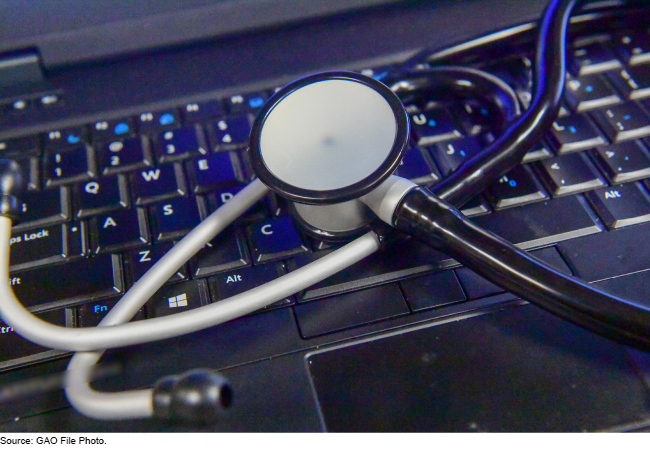Medicaid: Information on the Use of Electronic Asset Verification to Determine Eligibility for Selected Beneficiaries
Fast Facts
Medicaid and Supplemental Security Income (SSI) provide assistance to certain low-income people. These programs check the financial eligibility of those who apply.
In this report, we answer key questions related to electronic asset verification for Medicaid beneficiaries who are eligible because they receive SSI, as well as changes in enrollment and related issues.
To verify applicants' assets, the SSI program and state Medicaid programs use electronic data sources. For example, state Medicaid programs generally have systems to gather applicants' financial information from banks and other financial institutions.

Highlights
What GAO Found
Individuals who receive assistance from the federal Supplemental Security Income (SSI) program may also become eligible for Medicaid. SSI provides cash assistance to eligible individuals who are over age 65, blind, or disabled; and who have limited resources (i.e., assets) and income. Medicaid programs in 42 states and the District of Columbia use the SSI asset limit of $2,000 for an individual or $3,000 for a married couple. Medicaid programs in the remaining eight states may set an asset limit that differs from the current SSI asset limit.
The Social Security Administration (SSA), which administers the SSI program, and state Medicaid programs electronically verify the assets of these individuals when determining financial eligibility:
- In the 42 states and the District of Columbia that use the SSI asset limit, SSA is the entity that verifies applicants' assets. SSA has two data sources to detect assets among SSI beneficiaries. The first data source is the Access to Financial Institutions initiative. This initiative verifies reported bank accounts and can detect potential undisclosed accounts from financial institutions within geographic proximity of an SSI recipient's residence. The second data source is Non-home Real Property, which uses a commercial data source to help investigate potential ownership of real property other than a primary residence.
- In the eight states that may set their own asset limits, the state's Medicaid program must verify Medicaid eligibility for SSI recipients using an electronic asset verification system (AVS). An AVS provides a portal between state eligibility systems and banks or other third-party systems with electronic access to financial information. Once a state has an AVS in place, state eligibility workers can submit a request through the portal to perform an asset check for a Medicaid applicant. The request is sent to different financial institutions. A vendor gathers the information from the financial institutions and returns it to the state, and eligibility workers use the information to make an eligibility determination. Some states also use their AVS to check on applicants' property information, which may come from commercial data sources.
Why GAO Did This Study
GAO was asked to review the use of electronic asset verification to determine eligibility for selected Medicaid beneficiaries. This report provides an overview of what is known about how state Medicaid programs verify assets of applicants who are eligible because they receive SSI, and how SSA verifies assets of SSI applicants, among other issues.
To describe what is known about how state Medicaid programs and SSA verify applicants' assets, GAO reviewed its prior work, as well as related research by other organizations. GAO also obtained input from officials from the Centers for Medicare & Medicaid Services and SSA; and reviewed relevant federal laws, regulations, and guidance. The Department of Health and Human Services and SSA reviewed a draft of this report and provided technical comments, which GAO incorporated as appropriate.
For more information, contact Carolyn L. Yocom at (202) 512-7114 or yocomc@gao.gov.
